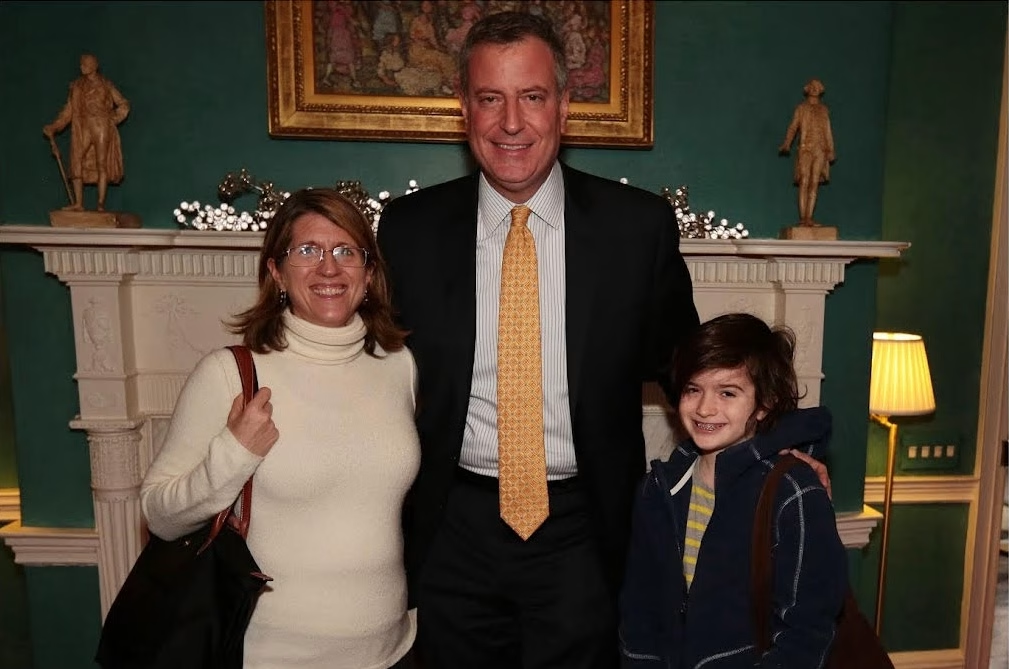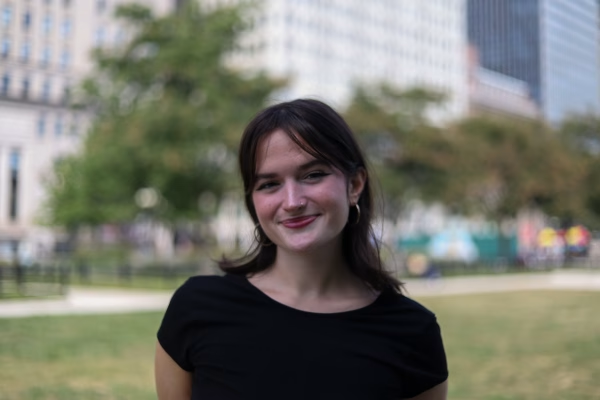Last night, my mom, all the way from Brooklyn, texted me this:
“I’m watching NY1 and they’re doing a piece on Chuck Schumer. I suddenly remembered being at the Atlantic Antic when you were little — I tried to get you to shake Schumer’s hand, but you refused!”
I’d say I get text messages along these lines on a weekly basis. My mom’s idea of relaxing after a long day is watching New York 1, the local cable news channel in New York. Ever since I can remember, it was on every night. Sometimes dinner was even cut short so she could catch the opening minutes of “Inside City Hall.”
New York 1 wasn’t where my family decided to draw the line with engagement with local politics in our city. We protested to keep bus lines running, took every opportunity to get photos with city politicians, even at our coveted street fair, the Atlantic Antic, and lived below the former New York City Schools Chancellor in our apartment building.
I lived in a bubble of local political bliss, usually occupied with noticing a NY1 reporter at Target or posing with former Brooklyn Borough President Marty Markowitz.
But as I got older, and decided to pursue political science and journalism in college in Chicago of all places, I was struck with the realization that local politics wasn’t just a weird obsession that my parents impressed on me, but rather the very first example of how one can see democracy in their everyday lives.
New York politics now have exploded far above Mayor Bloomberg’s “big soda ban” or Mayor DeBlasio’s uncomfortable, too-personal account of his divorce in The New York Times.
Our mayor just got indicted. Mayor Eric Adams’ time in office has been nothing but entertaining and chaotic, leaving us spoiled with laugh-worthy memes of the mayor’s off-handed comments or weird anecdotes about the city.
But the spotlight is now on New York, more so than it usually is. The Trump trials concluded in Manhattan, music mogul P. Diddy is in a New York jail, and Adams is the first sitting mayor to be indicted.
Paul Moses, New York journalist and former journalism professor at Brooklyn College, was not surprised when the news broke about Adams’ indictment on Sept. 26.
“By the time the indictment came, I wasn’t surprised,” Moses said. “Because you know, when they seize someone’s phone, that’s a pretty aggressive investigation.”
Before Adams became most famous for the indictment news, Moses pointed out that some saw hope in Adams when he first took office in 2022.
“I thought there was a potential that Eric Adams could be the one to solve the problem in police community relations,” Moses said. “He had a long history while he was in the police department of challenging practices and policies that he felt discriminated against the Black community.”
My conversation with Moses, who also resides in Brooklyn, rang eerily similar to dinner-table conversations with my parents, or the weekly phone calls I make home.
His wife, similar to my mom, even chimed in mid-interview to express her distaste with what some are predicting as an Andrew Cuomo mayoral possibility.
This piece sprung from what I saw as a personal connection to Adams’ indictment. After all, he was the first-ever mayor I got to vote for in New York.
But in my conversations in gathering information for this piece, I realized that the theme wasn’t “why do big cities have bad mayors?” Rather, it was further establishing the true love and importance I hold for the chaotic uniqueness of local politics, especially in our big cities.
It isn’t all indictments and national news, either.
John McCarron, a former DePaul journalism professor and Chicago Tribune journalist, explained how local policy can directly impact our lives, seen on a much more personal basis than federal level rulings.
“My daughter is disabled to some extent, and has mobility issues,” McCarron said. “She’d love to ride the CTA, but she can’t get up the stairs.”
McCarron continued to speak about how local politicians decide what CTA stations are ADA-compliant, along with other issues that city residents may be passionate about, such as trash pickup and parking.
My dad certainly attests to the parking problem. The happiest days I see him are when the alternate side is suspended for a city holiday.
Chicago isn’t excused from the conversation of local political woes, even if Adams’ indictment is taking the spotlight when thinking about big city mayors in today’s political climate.
I have heard the joke thousands of times now. Chicagoans wouldn’t even bat an eye at Adams’ corruption allegations.
But Mayor Brandon Johnson’s time in office also presented a similar hope to me that some felt when Adams took office. I was so hopeful to see a Chicago Teachers Union member voted into the position.
But now, with a school board disaster, along with recent qualms with local journalists, I have taken on a similar dissatisfaction with Johnson as I have with Adams.
I know that stress about the national election in November may be overshadowing any interest you may have in local politics.
But vote all the way down your ballot. Stay informed. Read local news, even if Chicago doesn’t have NY1. Your life, and the lives of those who don’t have as big of a voice as you do, are much more impacted by local politics than we may initially think.
Chicago media outlets have endless voter guides, explaining referendum questions and other local elections which are on the ballot in November. That way, a voter can take a couple minutes out of their day to situate themselves for both national and local elections.
We have to care about our cities, and we have to wish better for them than corruption and indictments.
Related Stories:
- New York City and Chicago competing migrant approaches
- Brandon Johnson proved, once again, that people power wins elections
Support Student Journalism!
The DePaulia is DePaul University’s award-winning, editorially independent student newspaper. Since 1923, student journalists have produced high-quality, on-the-ground reporting that informs our campus and city.
We rely on reader support to keep doing what we do. Donations are tax deductible through DePaul's giving page.


